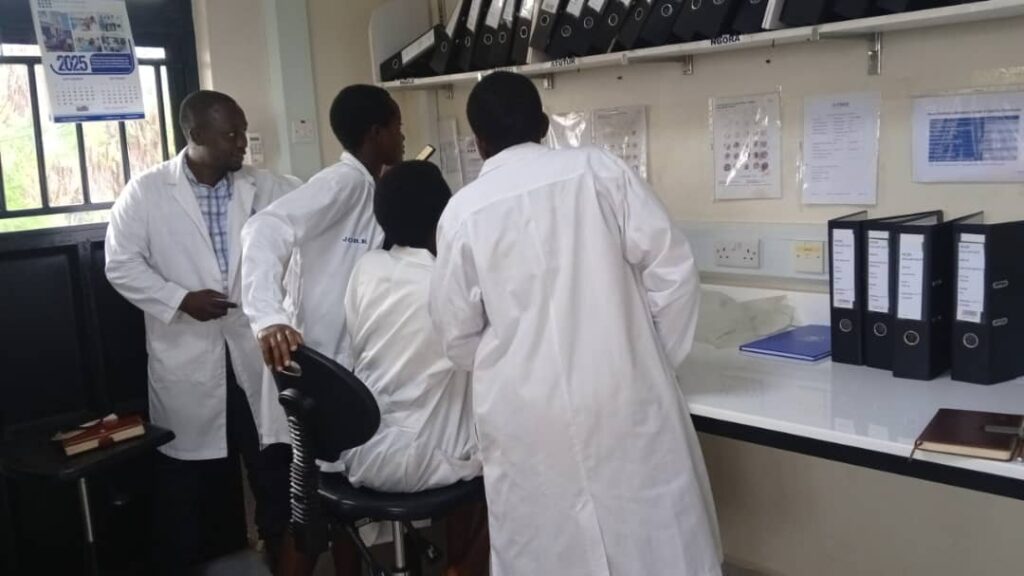
Three students—one from Senior Two (S2) and two from Senior Four (S4)—walked through the gates of Mbale Clinical Research Institute (MCRI) on a bright morning. They had come with many questions about their future: what careers in science truly look like, whether medicine and research were the right paths for them, and how to overcome the uncertainties they felt about subject choices and career direction.
At MCRI, they were warmly received by the Executive Director, Professor Peter Olupot-Olupot, who listened carefully to their aspirations and concerns. He spoke passionately about the role of science and clinical research in solving Africa’s greatest health challenges. He emphasized that determination, curiosity, and discipline are the cornerstones of a successful career, reminding them that even great scientists begin with questions just like theirs.
Later, the students were hosted by the Laboratory Team, who gave them a guided tour of the modern molecular and diagnostic laboratories. The team explained how research on malaria, sickle cell disease, and antimicrobial resistance is done. They demonstrated how data generated in the lab directly informs treatment and policy decisions, saving lives across the region. The students were thrilled to see young Ugandan scientists—once students like themselves—working confidently with cutting-edge technology.
By the end of their visit, the students’ doubts were eased. The S2 student now understood the importance of choosing science subjects early and nurturing her curiosity. The two S4 students, who had been torn between medicine, laboratory sciences, and public health, gained clarity on how these paths complement each other and how MCRI nurtures talent in all these fields.
They left inspired, saying the guidance had not only answered their questions but also opened their eyes to opportunities they had never imagined. For them, MCRI was no longer just a research institute—it had become a beacon of possibility.
